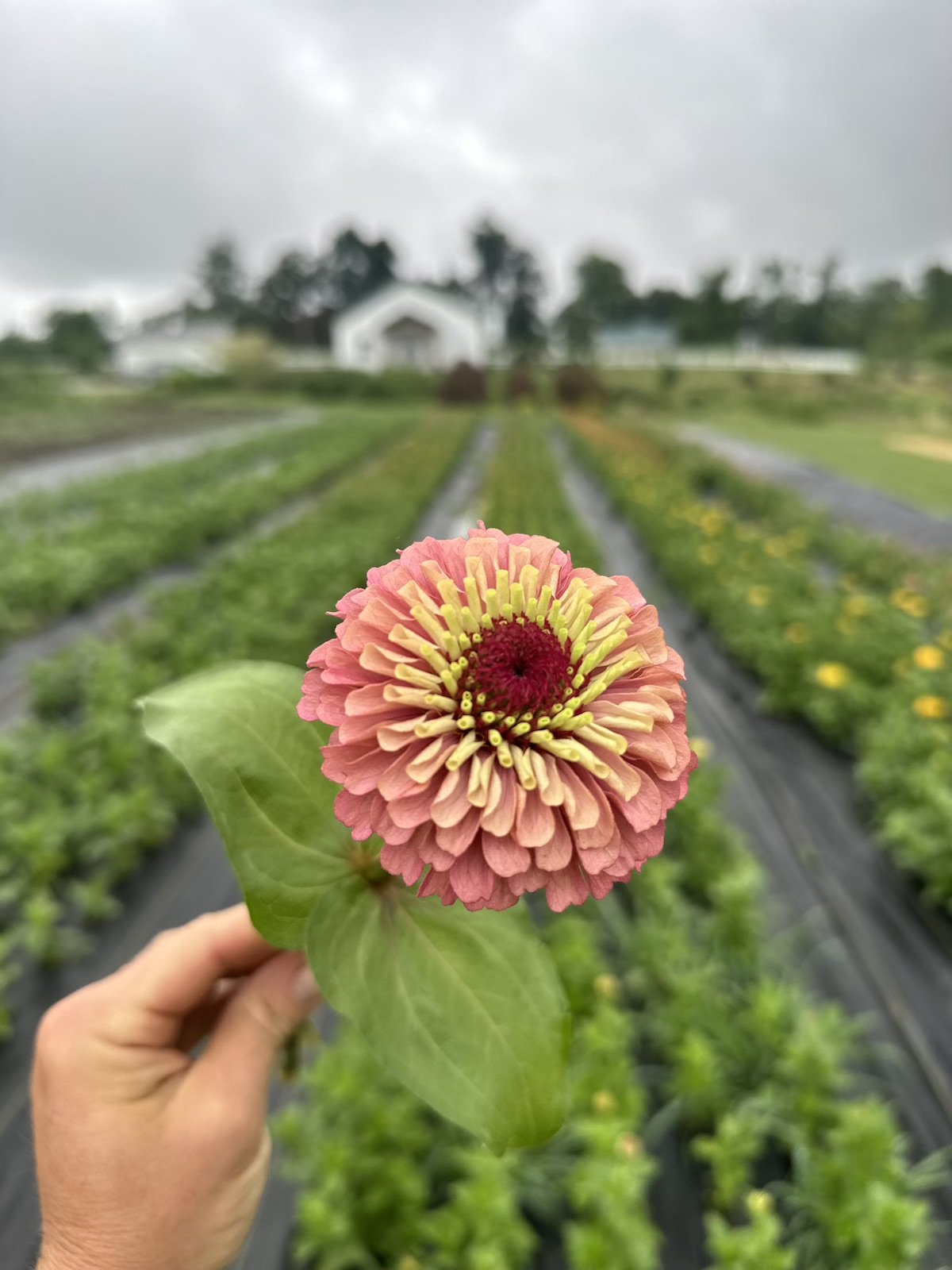Fun New Zinnias to Try In The Garden
When trying to decide what to grow in the garden, it’s so hard to choose flowers, because there are so many stunning flowers, but we’ve found that the unique charm of the ‘Queen’ series of zinnias is pretty remarkable and have selected them to grace our gardens this year.
Known for their unique color variations and hardy nature, these zinnias are a must-have for any garden enthusiast looking to add a touch of elegance and drama to their floral displays. Let's explore the unique varieties of the Queen series that we’re growing this year: Queen Lime Red, Queen Lime Blush, Queen Lime Orange, and Queen Lime Peach zinnias.
Queen Lime Red
The Queen Lime Red zinnia is a striking flower that demands attention. Its petals blend shades of deep red and green, creating a mesmerizing contrast that changes subtly with the light. The lime undertone provides a fresh and modern twist, making it a perfect choice for both traditional and contemporary garden designs. This zinnia stands out in mixed borders and makes a bold statement in cut flower arrangements, adding a pop of color and sophistication.
Queen Lime Blush
For those who prefer a softer palette, the Queen Lime Blush zinnia offers a delicate and romantic appeal. Its petals showcase a gentle blush of pink, subtly transitioning to a lime green center. This graceful flower evokes a sense of tranquility and elegance, making it ideal for cottage gardens and wedding bouquets. The Queen Lime Blush pairs beautifully with other pastel blooms, creating a harmonious and enchanting garden scene.
Queen Lime Orange
If you're looking to infuse your garden with warm and vibrant hues, the Queen Lime Orange zinnia is your go-to flower. This zinnia features a stunning blend of bright orange petals with a lime green center, exuding energy and vitality. It's a fantastic choice for creating lively and cheerful garden beds. The Queen Lime Orange zinnia also attracts pollinators, such as butterflies and bees, adding not just color but also life to your garden.
Queen Lime Peach
The Queen Lime Peach zinnia is the epitome of understated beauty. Its soft peach-colored petals, accented with hints of lime, bring a touch of vintage charm to any garden. This zinnia's subtle elegance makes it versatile for various garden styles, from rustic to formal. The Queen Lime Peach is especially delightful in floral arrangements, where its unique coloring adds depth and sophistication without overpowering other blooms.
Growing Tips for the Queen Series Zinnias
To enjoy the full splendor of the Queen series zinnias, follow these simple growing tips:
Location: Plant zinnias in a sunny spot where they can receive at least 6 hours of direct sunlight each day.
Soil: Use well-draining soil rich in organic matter. Zinnias thrive in slightly acidic to neutral soil (pH 5.5 to 7.5).
Watering: Water zinnias regularly, keeping the soil moist but not waterlogged. Avoid overhead watering to prevent leaf diseases.
Spacing: Space plants about 12-18 inches apart to ensure good air circulation and reduce the risk of fungal infections.
Deadheading: Remove spent flowers to encourage continuous blooming and maintain the plant's appearance.
The Queen series of zinnias—Queen Lime Red, Queen Lime Blush, Queen Lime Orange, and Queen Lime Peach—offers a stunning array of colors and forms that can transform any garden into an incredible display of unique color. These zinnias are not only beautiful but also easy to grow and care for, making them a favorite among gardeners of all levels. Whether you're creating a vibrant summer garden or designing a sophisticated floral arrangement, the Queen series zinnias are sure to add a regal touch to your efforts.





